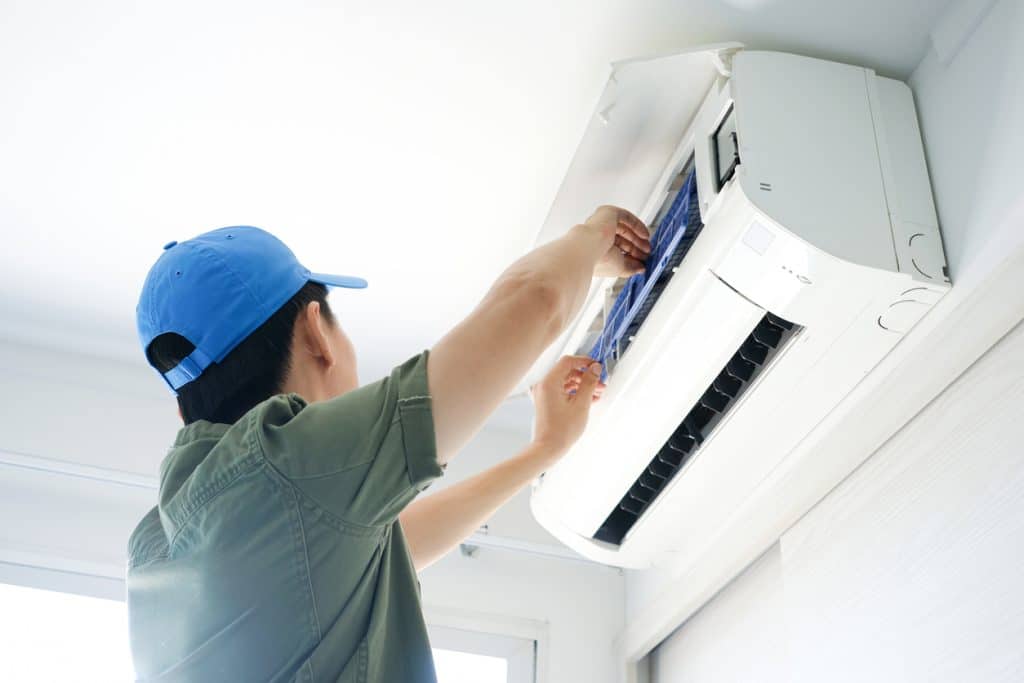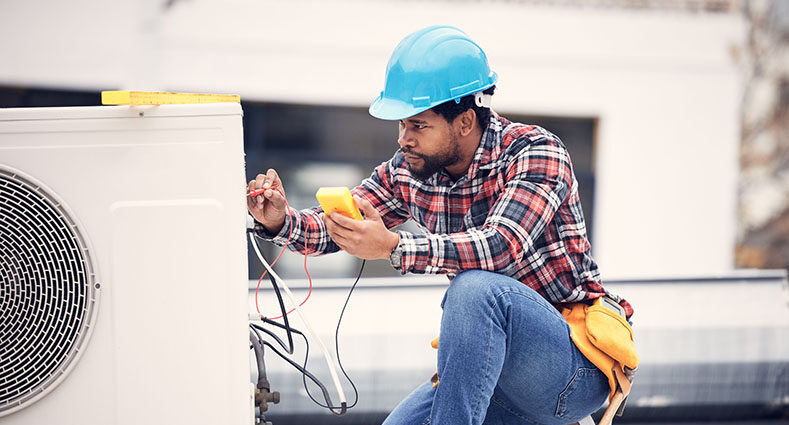How an HVAC company can help prevent frequent breakdowns
The Importance of A/c Expertise: Uncovering Reasons For A/c Problems for Property Owners
House owners usually forget the importance of comprehending their a/c systems. Identifying common signs of cooling issues can cause timely interventions. Problems like inadequate air conditioning or unusual noises are not just aggravations; they can suggest deeper concerns. By checking out the origin causes of these problems, homeowners can boost system efficiency and extend its life expectancy. What are the most common issues that can arise, and how can they be successfully dealt with?
Usual Indications of Air Conditioner Issues
Exactly how can house owners recognize problems with their air conditioning systems before they rise? Acknowledging typical indicators of air conditioning problems is essential for prompt upkeep. One widespread indication is inadequate air conditioning; if the a/c unit falls short to reduce the indoor temperature, it might indicate underlying concerns. Uncommon noises, such as grinding or hissing, can also indicate mechanical failings or loosened elements - air conditioner repair. Furthermore, homeowners ought to be careful of odd smells rising from the unit, which could recommend mold development or electric issues. Regular cycling on and off, referred to as short biking, can indicate thermostat problems or refrigerant leakages. Additionally, an increase in power expenses without an equivalent surge in usage may indicate ineffectiveness. By staying alert to these warning indicators, property owners can protect against extra substantial issues and pricey repairs, guaranteeing their cooling systems operate successfully throughout the warmer months

Understanding Refrigerant Issues
Refrigerant concerns can greatly affect the efficiency of a cooling and heating system. Home owners must know the indicators of reduced refrigerant levels and the importance of detecting cooling agent leakages. Addressing these troubles without delay can prevent further damages to the system and guarantee top cooling down efficiency.
Low Cooling Agent Levels
A typical issue that homeowners might run into with their cooling and heating systems is reduced refrigerant degrees, which can significantly influence the system's efficiency and efficiency. Refrigerant is essential for the cooling process, soaking up warm from interior air and launching it outside. When degrees go down, the air conditioning unit struggles to cool the room successfully, resulting in enhanced power consumption and possible system strain. Symptoms of reduced refrigerant consist of poor air conditioning, longer run times, and ice formation on the evaporator coils. House owners may likewise observe unusual noises as the compressor functions harder to compensate for the deficiency. It is very important for house owners to understand the significance of keeping correct cooling agent degrees to guarantee peak HVAC performance and long life.
Refrigerant Leaks Discovery
Where might a house owner start when confronted with the opportunity of cooling agent leakages in their HVAC system? The first step involves keeping track of the system's performance. Signs such as reduced cooling efficiency, ice formation on coils, or hissing noises may show a cooling agent leakage. Home owners ought to additionally look for noticeable indications of oil residue, typically an indication of a leak. Making use of a cooling agent leak detector can offer more exact recognition. If uncertainties persist, consulting a certified cooling and heating professional is important, as they possess the know-how and equipment to find leaks successfully. Trigger discovery and repair work of refrigerant leaks not only boost system performance however also prevent prospective environmental damage, making it a necessary element of a/c maintenance.
Electrical Failures and Their Influence
Electric failures can greatly impact HVAC systems, specifically with concerns like breaker malfunctions and defective circuitry. These issues not only disrupt the system's efficiency but can also cause costly repair work and safety and security threats. Comprehending the effects of such failures is vital for homeowners to preserve a reliable and risk-free HVAC setting.
Circuit Breaker Issues
Just how can breaker issues impact the efficiency of an a/c system? Breaker serve as critical safety devices that take care of electric flow to HVAC devices. If a breaker journeys often, it disrupts power supply, causing inconsistent home heating or cooling. This can cause considerable strain on the system, resulting in ineffective procedure and possible damages to elements. Property owners might observe increased energy costs as a result of the a/c system's battle to preserve preferred temperature levels. Additionally, duplicated disturbances from tripped breakers can reduce the lifespan of the a/c device, requiring pricey repairs go to this web-site or substitutes. Regular maintenance of breaker is critical, as it assures a steady power supply, ultimately boosting the total efficiency of the a/c system.
Faulty Electrical Wiring Outcome
Regularly forgotten, faulty electrical wiring can have dire effects for HVAC systems. Circuitry concerns may result in short circuits, causing constant failures and boosted repair prices. On top of that, incorrect wiring can create ineffective energy use, causing higher energy costs and stress on the system. In severe situations, faulty electrical wiring can set off electric fires, posturing a considerable safety and security threat to home owners. These electric failings can harm A/c components, resulting in pricey replacements or considerable fixings. Homeowners must focus on routine examinations by certified professionals to identify and fix electrical wiring issues prior to they escalate. Comprehending the effects of defective circuitry can help ensure the long life and security of cooling and heating systems, eventually safeguarding both the home and its owners.
Clogged Filters and Their Repercussions
While several property owners may forget the significance of normal filter upkeep, stopped up filters can result in significant effects for HVAC systems. When filters come to be obstructed with dust, dust, and debris, air flow is restricted. This reduction in air flow requires the system to function harder, causing increased power intake and possibly higher utility bills. Over time, this strain can cause wear and tear on parts, resulting in premature system failing.
In addition, clogged up filters can endanger interior air high quality. Toxins and irritants might flow throughout the home, aggravating breathing problems and allergic reactions for owners. Inadequate airflow can cause the evaporator coil to ice up, leading to expensive fixings and ineffective air conditioning performance. Consistently altering or cleansing filters is an easy yet necessary upkeep task that can help assure the longevity and efficiency of a/c systems, eventually profiting both the property owner's comfort and their finances.

Thermostat Malfunctions Described
What happens when a thermostat malfunctions can greatly impact both convenience and energy efficiency in a home (HVAC company). A malfunctioning thermostat may fail to accurately check out the temperature level, causing overcooling or not enough air conditioning. This disparity can cause discomfort for passengers and cause greater power costs, as the heating and cooling system works more challenging than needed
Typical issues include dead batteries, which can provide electronic thermostats faulty, and loosened circuitry that disrupts communication between the thermostat and the HVAC device. In addition, obsolete or inadequately adjusted thermostats might not respond correctly to temperature level modifications, even more worsening power ineffectiveness.
House owners ought to be cautious for indicators of breakdown, such as irregular temperature levels or unforeseen energy costs. Routine checks and understanding of the thermostat's functionality can assist recognize issues early, ensuring peak efficiency of the a/c system. Dealing with thermostat problems immediately is crucial for preserving a comfy living atmosphere and managing power intake efficiently.
The Function of Regular Maintenance
Regular upkeep plays a crucial role in guaranteeing the durability and performance of heating and cooling systems. Home owners who focus on routine checks can home heating and air conditioning systems avoid small concerns from escalating right into costly repair work. Normal upkeep usually includes tasks such as cleaning filters, inspecting ductwork, and inspecting cooling agent levels. These tasks help preserve ideal airflow and system efficiency, lowering energy usage.
Additionally, a well-kept a/c system runs more efficiently, offering regular comfort throughout Clicking Here the home. Routine tune-ups can additionally prolong the lifespan of the system, causing substantial financial savings in time. Home owners are encouraged to arrange specialist evaluations a minimum of annually to determine possible problems early.
On top of that, lots of makers need regular upkeep to copyright guarantees, making this technique not only advantageous yet usually essential. In general, understanding the significance of regular upkeep encourages property owners to protect their heating and cooling systems against unanticipated failings and improve their financial investment in home comfort.
Often Asked Inquiries
Exactly How Can I Boost My A/c's Energy Performance?
Improving an air conditioner's energy efficiency entails routine upkeep, cleaning or replacing filters, securing ductwork, guaranteeing proper insulation, making use of programmable thermostats, and organizing expert examinations to determine and remedy potential problems influencing efficiency.
What Is the Life expectancy of a Typical Cooling Unit?
A regular a/c unit has a life-span of 15 to twenty years, depending on maintenance, use, and ecological aspects. Normal maintenance can substantially extend its functional life and enhance overall effectiveness.
When Should I Replace My A/c System?
An air conditioning system ought to generally be changed every 10 to 15 years. Indicators for substitute consist of constant fixings, rising power expenses, and inadequate cooling, suggesting that an upgrade might be much more economical and efficient.
Can I Fix AC Troubles Myself?
Yes, individuals can fix AC troubles themselves by examining filters, making sure power supply, and checking for noticeable concerns (AC repairman). Intricate troubles commonly need expert support for exact diagnosis and safe repair, ensuring optimal system efficiency.
Exactly how Do I Pick a Trustworthy Heating And Cooling Technician?

To pick a dependable heating and cooling service technician, one need to look for referrals, inspect on-line evaluations, verify licenses and insurance, assess experience, and demand comprehensive quotes to assure top quality solution and fair prices before deciding.
Final thought
To sum up, a strong understanding of a/c systems allows homeowners to properly diagnose and attend to usual cooling problems. Identifying indications such as insufficient cooling or climbing energy prices permits timely treatments, which can significantly enhance system effectiveness and long life. By remaining informed regarding potential issues like cooling agent leakages, electrical failings, and blocked filters, house owners can take proactive measures to preserve their systems, inevitably ensuring convenience and advertising a healthier living setting. Routine maintenance continues to be key to this endeavor.